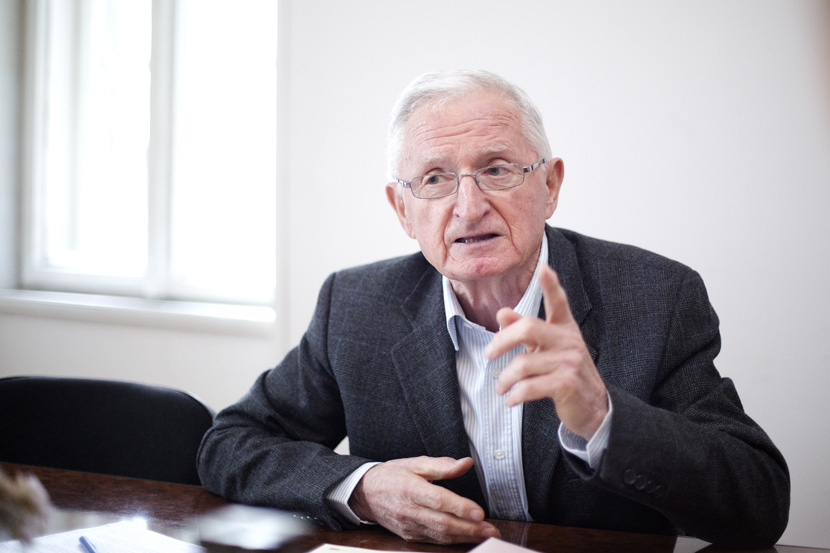CIA published a document that testifies how Milosevic sold out Serbs in Croatia (PHOTO)
Central Intelligence Agency (CIA) published 12 million pages on internet which had their "secret" stamp removed. Among them there was a report about Slobodan Milosevic intentions, former Serbian president, to continue with negotiations about stopping the war in order to remove sanctions on Federal Republic of Yugoslavia, despite Croatian aggression on Republika Srpska Krajina and the exodus of refugees.
Dodik's "pride" will cost Serbs and Republika Srpska dearly
Report dating from 16th August 1995, prepared for Richard Holbrooke, former assistant state secretary for Europe, states that Milosevic decided to try and conclude the agreement despite the defeat of Krajina Serbs in sectors under the protection of UN Nortn and South in Croatia and accusations for betrayal from Serbian refugees that started moving to Serbia.

Early reports point out, written in the document, that Milosevic was motivated with desire to abolish sanctions, which were applied to his regime. Also, he intended to conclude the agreement, to give Serbs remaining territories in Bosnia and maybe in Croatian sector East, within the territorial settlement.

American intelligence however notices that the progress of Croatian army in Bosnia or the attack in Sector East would seriously limit Milosevic's options and it would eventually be the trigger for direct intervention of Yugoslav army.
Belgrade goals
Milosevic decision does not challenge Croatian taking over of Krajina, with strong criticism of Bosnian and Krajina Serbs, it points out that he tried to consolidate his political control over the future. In that sense, written in the report, his idea of "Great Serbia" would cover parts of Bosnia and maybe Croatia.
Even though the part of the report is covered up, it can be read that Belgrade in 1993 was ready to give up the most of the territories in Croatia, but to secure Posavski corridor between Serbia and west Bosnia.

Milosevic's primary goal was to remain in power. With Croatia conquering Krajina, the only dilemma was removed for him to defend distant Serbian territory, CIA considers. Also, the possibility has occurred to him to remove his key political rivals,especially the leaders of Bosnian Serbs, Karadzic, who prevented Milosevic efforts to make agreeable settlement and to legitimize a "Greater Serbia".
Even though Karadzic has the support of the Assembly of Bosnian Serbs, his days as a leader of Bosnian Serbs were numbered, written in the report. Even if he remains a president, true leader of Bosnian Serbs is a commandant Mladic, who was closer to Milosevic.

The abolition of sanctions was particularly significant for Milosevic, especially in the light of 150.000 refugees which will be a burden to the economy in depression.
Negotiating position
Control over the security services, most of the media and older officers of Yugoslav military ensured Milosevic the rule in the future and enabled him to avoid responsibility for the fall of Krajina, he would move the weight on the leaderships of Krajina and Bosnia Serbs.
From the Croatian taking over of Krajina, pro-state media in Belgrade persistently claim that the leadership of Krajina Serbs is to blame for the debacle in Krajina, because they did not accept the agreement Z4, which offered partial autonomy to Serbs in Croatia.
Milosevic also, because of the presence of great number of disaffected refugees decided to disperse them in Vojvodina, South Serbia and ethnic-Albanian settlements on Kosovo. According to the reports of american diplomats, Serbian police blocked them outside Belgrade - the only city in Serbia where opposition had stronghold.

Report states that Milosevic successfully repressed the influence of ultranationalists, by arresting the leader of "White eagles" Mirko Jovic, while the influence of Vojislav Seselj was reducing.
The plan of contact group
The acceptance of previous peace plans by Milosevic suggests that the President of Serbia agreed with key aspects of the latest initiative of USA and he was ready to make some pressure on accepting the plan by Bosnian Serbs. Milosevic in that way believes that Mladic will be more open than Karadzic in the negotiations about the agreement.
Back against the wall
The report says that it is hard to determine special circumstances that would stimulate great intervention of Yugoslav military in the conflict next to the great Croatian attack in the sector East. Former federal Yugoslav Foreign Minister Jovanovic warned earlier this month that Belgrade wouldn't sit still if its vital interest is jeopardize, but he didn't precise those interest.

However, american intelligence presume that eventual attack on Banja Luka and parting of Pasavski corridor would affect the intervention of Yugoslav military.
Video: Počela manifestacija "Noć legata“
Telegraf.rs zadržava sva prava nad sadržajem. Za preuzimanje sadržaja pogledajte uputstva na stranici Uslovi korišćenja.

